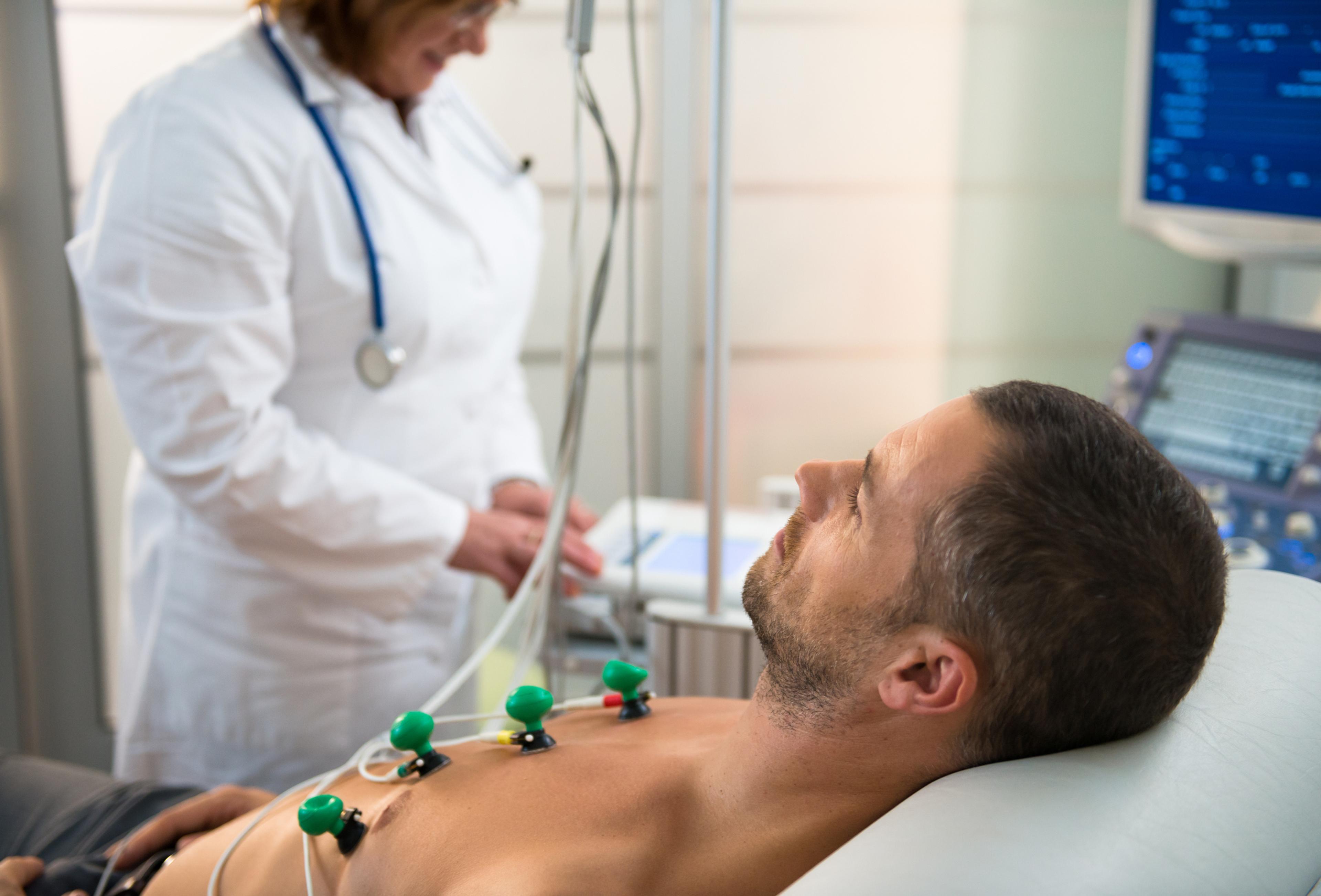EKG Tests: How to Prepare and What to Know
Jake Newby
| 4 min read

An electrocardiogram (EKG or ECG) test is a safe, noninvasive cardiac screening that records the electrical activity of the heart, measuring the rate and rhythm of the heartbeats.
EKGs can be performed in multiple settings. A primary care provider (PCP) may recommend an EKG as part of an annual preventive visit for those with certain risk factors including some chronic conditions or a family history of heart disease. A PCP may also perform an EKG to evaluate symptoms such as chest pain or heart palpitations. Specialists, like Cardiologists, perform EKGs in their offices when patients are seen for consultations or follow-up visits.
EKGs are commonly performed in emergency situations by paramedics in ambulances and in hospital emergency rooms. An EKG can help determine if blocked or narrowed arteries in the heart are causing chest pain, or could lead to a heart attack.
How does an EKG work?
During an EKG, you will lie down flat on an exam table as a technician attaches as many as 12 sensor patches – also known as electrodes – to your chest, arms and legs. They pick up signals from your heart and send them through lead wires attached to a computer monitor, which creates a wave chart of data based on the electrical impulses moving through your heart. This is known as a “resting” EKG. In some cases, you’ll undergo the test while exercising.
For symptoms like heart palpitations that may come and go, an EKG may not capture an abnormal rhythm at the time of the test. When this is the case, providers typically recommend remote or continuous EKG monitoring, either through a Holter monitor or an event monitor.
A Holter monitor is a small, wearable device that records a continuous EKG over a 24-to-48-hour period. Event monitors are portable devices similar to Holter monitors, but they only record electrical signals for a few minutes at a time. Unlike with the Holter monitor, event monitors can be worn for a week or more. You may need to click a button on it to start recording signals when you feel symptoms.
What problems can an EKG detect?
EKGs can detect a wide range of heart issues, including:
- Chest pain caused by blocked or narrowed arteries in the heart (coronary artery disease).
- Irregular heart rhythm (arrhythmia).
- Previous heart attacks.
- Unusually fast heart rates (tachycardia).
- Unusually slow heart rates (bradycardia).
- Whether pacemakers or other heart disease treatments are working.
If you have a family history or experience the following signs and symptoms, you may need an EKG:
- Chest pain
- Dizziness or lightheadedness
- Heart palpitations
- Rapid pulse
- Shortness of breath
- Weakness, fatigue or a decline in ability to exercise.
How do I prepare for an EKG test?
Special preparation isn’t typically needed for a standard EKG, as you can eat or drink like you normally would leading right up to the test. But you should be prepared to list any medications or supplements you take to your technician before the EKG, as they could impact test results. If you have hair on your chest, arms and legs, you may want to shave ahead of time. Otherwise, the technician will shave the hair to make sure the electrode patches stick. You can breathe normally during the test, but you must be prepared to lie still. Moving, talking or shivering may skew the results.
How long does an EKG test take?
It takes about 10 minutes to attach the electrodes and complete the test, but the actual recording takes only a few seconds.
Are there any risks to taking an EKG test?
There is no risk of electrical shock during an EKG, as the electrodes used do not produce electricity. You may feel some minor discomfort when the electrodes are removed, similar to taking off a bandage. Some people may be susceptible to developing a slight rash where the patches were placed. This rash will resolve on its own and typically does not require any treatment.
Are smartwatch EKGs reliable?
Smartwatch technology is advancing rapidly. Many feature a built-in EKG tool capable of measuring a heart rate and rhythm while others can perform a more complete EKG. More research is needed to determine the accuracy and reliability of the Smartwatch EKG feature.
For now, talk with your primary care provider to understand if a baseline EKG is right for you. Seek immediate medical attention if you have more urgent symptoms including heart palpitations, shortness of breath, or chest pain.
Photo credit: Getty Images
Keep reading:





